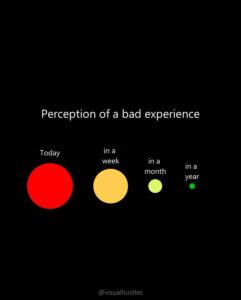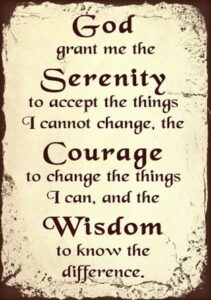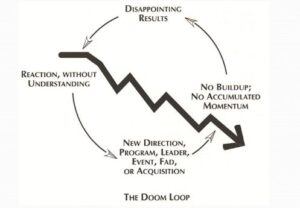Dear new graduate: Congratulations and hats off to you! You’ve come a long way and reached a major milestone in your life.
Maybe you’ve been so busy finishing assignments and getting to graduation that you haven’t taken much time to think about what comes next. (If so, you’re not alone!)
With that in mind, here are some of the biggest mistakes new graduates make:
❌ Putting too much pressure on yourself to have it all figured out right away.
❌ Committing too early to a career path without vetting it deeply and remaining open to new and better possibilities.
❌ Not clarifying what’s important to you when it comes to work. (In addition to pay, for example, what about opportunities for learning and growth, a vibrant culture, chances to work with great people, or meaningful work?)
❌ Not doing nearly enough vetting of the organizations you’re considering working with (including their values and culture, your manager, and career path). (See my article, “How to Find a Great Organization to Work For.”)
❌ Accepting other people’s definition of success instead of defining it for yourself.
❌ Living someone else’s life.
❌ Defining yourself by comparison, as opposed to by your own core values and guiding lights.
❌ Defining self-worth by your accomplishments.
❌ Spending your best years and trading your precious life energy on dubious things.
❌ Succeeding at something that doesn’t really matter to you.
❌ Not taking stock of your quality of life regularly.
“The unexamined life is not worth living.”
-Socrates, ancient Greek philosopher
❌ Chasing status and prestige in your work because of how it will make you look in the eyes of others. (See my article, “The Powerful Pull of the Prestige Magnet.”)
“An easy way to pick the wrong career is to put your image above your interests and identity. A motivating job isn’t the one that makes you look important. It’s the one that makes you feel alive. Meaningful work isn’t about impressing others. It’s about expressing your values.” -Adam Grant, organizational psychologist
❌ Assuming that “climbing the ladder” is the point of work. (See my TEDx talk on LIFE entrepreneurship and “climbing mode” versus “discover mode.”)
❌ Viewing your career as a race against your peers. (See my article, “Feeling Behind? It May Be a Trap.”)
❌ Focusing too much on material comfort and financial gain and not enough on happiness, love, personal growth, and spiritual depth. (See my article, “Beware the Disease of More.”)
❌ Assuming that worldly success will fill you up.
❌ Giving too much of yourself or your time away to unreasonable bosses or unacceptable circumstances.
❌ Staying too long in a job that’s not a good fit or with a bad manager.
❌ Letting your life get overly full and cluttered, with not enough white space.
❌ Letting work consume too much of your life.
“…the problem isn’t how hard you’re working, it’s that you’re working on things that aren’t right for you.
Your goals and motivations aren’t harmonizing with your deepest truth.”
-Martha Beck, The Way of Integrity
❌ Not honoring your commitments to those you belong to.
❌ Losing touch with your close friends.
❌ Playing it safe in your career and not taking enough risks early on while you have more time, freedom, and flexibility—perhaps playing small out of fear.
“So many of us choose our paths in life out of fear disguised as practicality.”
-Jim Carrey, comedian and actor
❌ Thinking you’re done learning now that you have a degree.
❌ Falling into bad habits that will cause you to waste a lot of time or drift away from your values.
❌ Not taking charge of your free time, perhaps because you’re so drained from work.
❌ Letting yourself become cynical and jaded. (See my article, “Guard Your Heart.”)
❌ Making decisions or taking actions that aren’t in line with your core values and top priorities.
❌ Not giving more of yourself to others.
❌ Neglecting opportunities for fun and adventure in your life.
❌ Not daring to put your own distinctive stamp on your workplace, community, and world.
Conclusion
When it comes to navigating the early chapters of your career, it’s easy to focus on what other people expect of you and get lost in what our larger culture values. But it’s far better to get busy becoming who you really are.
It’s easy to get caught up in playing the short game instead of the long one—with a broader perspective on what’s important in life and what would be a life well lived.
Before you get too busy with the hustle and bustle of life and work, take the time to get to know yourself well—including your core values, strengths, passions, and vision of the good life. And learn to trust yourself as you craft a life you’ll be proud of.
Wishing you well with it—and let me know if I can help.
–Gregg

Tools for You
- Traps Test (Common Traps of Living) to help you identify what’s getting in the way of your happiness and quality of life
- Quality of Life Assessment so you can discover your strongest areas and the areas that need work, then act accordingly.
- Strengths Search to help you identify your core strengths and starting using them more in your life and work
Related Articles & Resources
- “Tips for New Graduates on Life, Work, and Big Decisions”
- “Big Questions for New Graduates”
- “The Best Books for New Graduates” (Alex Budak)
- “Are You Trapped by Success?”
- “Is This It? On the Disappointment of Success”
- “The Conformity Trap”
- “The Trap of Deferring Dreams and Postponing Happiness”
- “The Trap of Caring Too Much about What Other People Think”
- “Feeling Behind? It May Be a Trap”
- “The Comparison Trap”
- “Are You Playing the Long Game?”
- “The Powerful Pull of the Prestige Magnet”
- Gregg’s TEDx talk on “LIFE Entrepreneurship” (and “climbing mode” vs. “discover mode”)
Postscript: Inspirations for New Graduates
- “Big career decisions don’t come with a map, but all you need is a compass. In an unpredictable world, you can’t make a master plan. You can only gauge whether you’re on a meaningful path. The right next move is the one that brings you a step closer to living your core values.” -Adam Grant, professor
- “One of the things is putting pressure on having that perfect solution lined up. While we should dream big, sometimes we need to make smaller moves and small experiments to build confidence and gather data and grow more organically in a new direction. In reality, what works is getting anchored in existing strengths and experiences and have a general feeling of success. There is no real way to know the answers up to the front of what to pursue next in our careers unless we’re running small tests and learning from them.” -Jenny Blake, author and podcaster
- “One of the best pieces of advice for young people is, Get to yourself quickly. If you know what you want to do, start doing it.” -David Brooks, The Second Mountain
- “The deepest vocational question is not ‘What ought I to do with my life?’ It is the more elemental and demanding ‘Who am I? What is my nature?’” -Parker Palmer, Let Your Life Speak
- “…the secret of career satisfaction lies in doing what you enjoy most. A few lucky people discover this secret early in life, but most of us are caught in a kind of psychological wrestling match, torn between what we think we can do, what we (or others) feel we ought to do, and what we think we want to do. Our advice? Concentrate instead on who you are, and the rest will fall into place.” -Paul D. Tieger, Barbara Barron, and Kelly Tieger, Do What You Are
- “Your work is to discover your work and then with all your heart to give yourself to it.” -Siddhartha Gautama (the Buddha)
- “If the ladder is not leaning against the right wall, every step we take just gets us to the wrong place faster.” -Stephen R. Covey, educator and author
- “Go to work for an organization or people you admire. It will turn you on. You ought to be happy where you are working. I always worry about people who say, ‘I’m going to do this for 10 years’ and ‘I’m going to do 10 more years of this.’ That’s a little like saving sex for your old age. Not a very good idea. Get right into what you enjoy.” -Warren Buffett, investor
- “Your work is going to fill a large part of your life, and the only way to be truly satisfied is to do what you believe is great work. And the only way to do great work is to love what you do.” –Steve Jobs, co-founder, Apple
- “Shadow Career is the term used to describe people who go on an alternative path from their true dream because they’ve given up on themselves.” -Dr. Benjamin Hardy, Be Your Future Self Now
- “I don’t have a problem with what you do, that’s your choice. What I have a problem with is you lying to yourself about why you’re doing the things you’re doing. You have a choice.” -Jerry Colonna, co-founder and CEO, Reboot
- “In our time, we workers are being called to reexamine our work: how we do it; whom it is helping or hurting; what it is we do; and what we might be doing if we were to let go of our present work and follow a deeper call.” -Matthew Fox, Episcopal priest and theologian
- “We spend far too much time at work for it not to have deep meaning.” -Satya Nadella, CEO, Microsoft
- “Don’t aim at success—the more you aim at it and make it a target, the more you are going to miss it. For success, like happiness, cannot be pursued; it must ensue… as the unintended side-effect of one’s personal dedication to a cause greater than oneself.” -Victor Frankl, psychologist, author, and Holocaust survivor
- “…God is calling you to serve Him in and from the ordinary, material, and secular activities of human life. He waits for us every day, in the laboratory, in the operating theatre, in the army barracks, in the university chair, in the factory, in the workshop, in the fields, in the home and in all the immense panorama of work. Understand this well: there is something holy, something divine, hidden in the most ordinary situations, and it is up to each one of you to discover it.” -Josemaria Escriva, Conversations
- “Unhappy is he who depends on success to be happy. For such a person, the end of a successful career is the end of the line.” -Alex Dias Ribeiro, former Formula 1 race-car driver
- “What shall it profit a man if he shall gain the whole world, and lose his own soul?” -Mark (8:36)
- “Discovering vocation doesn’t mean scrambling toward some prize just beyond your reach, but rather accepting the treasure that you have been given. But make no mistake about it, well-meaning people around you—friends, family work associates, and others—will push you to run someone else’s race.” -Nicholas Pearce, pastor and professor
- “Today I understand vocation quite differently—not as a goal to be achieved but as a gift to be received. Discovering vocation does not mean scrambling toward some prize just beyond my reach but accepting the treasure of true self I already possess. Vocation does not come from a voice ‘out there’ calling me to become something I am not. It comes from a voice ‘in here’ calling me to be the person I was born to be, to fulfill the original selfhood given me at birth by God.” -Parker Palmer, Let Your Life Speak
- “…I (like many others) felt a wrongness in the world, a wrongness that seeped through the cracks of my privileged, insulated childhood…. Life, I knew, was supposed to be more joyful than this, more real, more meaningful, and the world was supposed to be more beautiful. We were not supposed to hate Mondays and live for the weekends and holidays…. We were not supposed to be kept indoors on a beautiful day, day after day.” -Charles Eisenstein, The More Beautiful World Our Hearts Know Is Possible
- “Your career is like a garden. It can hold an assortment of life’s energy that yields a bounty for you. You do not need to grow just one thing in your garden. You do not need to do just one thing in your career.” -Jennifer Ritchie Payette, author
+++++++++++++++++
Gregg Vanourek is a writer, teacher, and TEDx speaker on personal development and leadership. He is co-author of three books, including LIFE Entrepreneurs: Ordinary People Creating Extraordinary Lives (a manifesto for living with purpose and passion) and Triple Crown Leadership: Building Excellent, Ethical, and Enduring Organizations (a winner of the International Book Awards). Check out his Crafting Your Life & Work online course or get his monthly newsletter. If you found value in this article, please forward it to a friend. Every little bit helps!



























